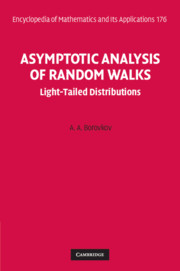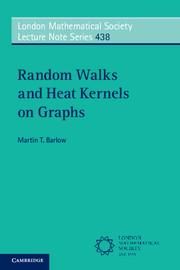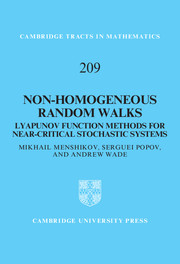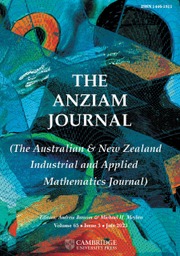Asymptotic Analysis of Random Walks
This is a companion book to Asymptotic Analysis of Random Walks: Heavy-Tailed Distributions by A.A. Borovkov and K.A. Borovkov. Its self-contained systematic exposition provides a highly useful resource for academic researchers and professionals interested in applications of probability in statistics, ruin theory, and queuing theory. The large deviation principle for random walks was first established by the author in 1967, under the restrictive condition that the distribution tails decay faster than exponentially. (A close assertion was proved by S.R.S. Varadhan in 1966, but only in a rather special case.) Since then, the principle has always been treated in the literature only under this condition. Recently, the author jointly with A.A. Mogul'skii removed this restriction, finding a natural metric for which the large deviation principle for random walks holds without any conditions. This new version is presented in the book, as well as a new approach to studying large deviations in boundary crossing problems. Many results presented in the book, obtained by the author himself or jointly with co-authors, are appearing in a monograph for the first time.
- The first unified systematic exposition of large deviation theory for light-tailed random walks
- A leading specialist details the current state of affairs in this important research area
- Offers a logical complement to Asymptotic Analysis of Random Walks: Heavy-Tailed Distributions
Reviews & endorsements
'… an important acquisition for a library supporting a large research group in random walks.' M. Bona, Choice
Product details
October 2020Adobe eBook Reader
9781108907798
0 pages
This ISBN is for an eBook version which is distributed on our behalf by a third party.
Table of Contents
- 1. Preliminaries
- 2. Distribution approximations for sums of random variables
- 3 Boundary problems for random walks
- 4. Large deviation principles for trajectories of random walks
- 5. Moderately large deviation principles for trajectories of random walks and processes with independent increments
- 6. Applications to mathematical statistics.






